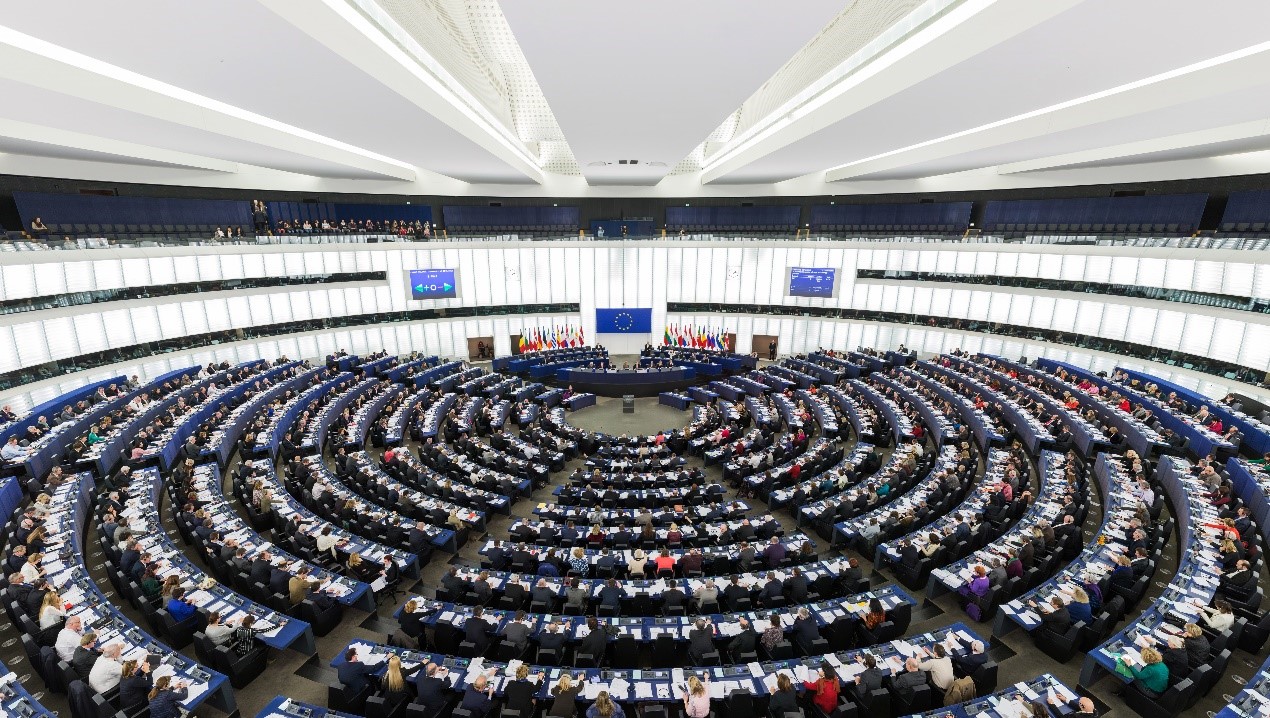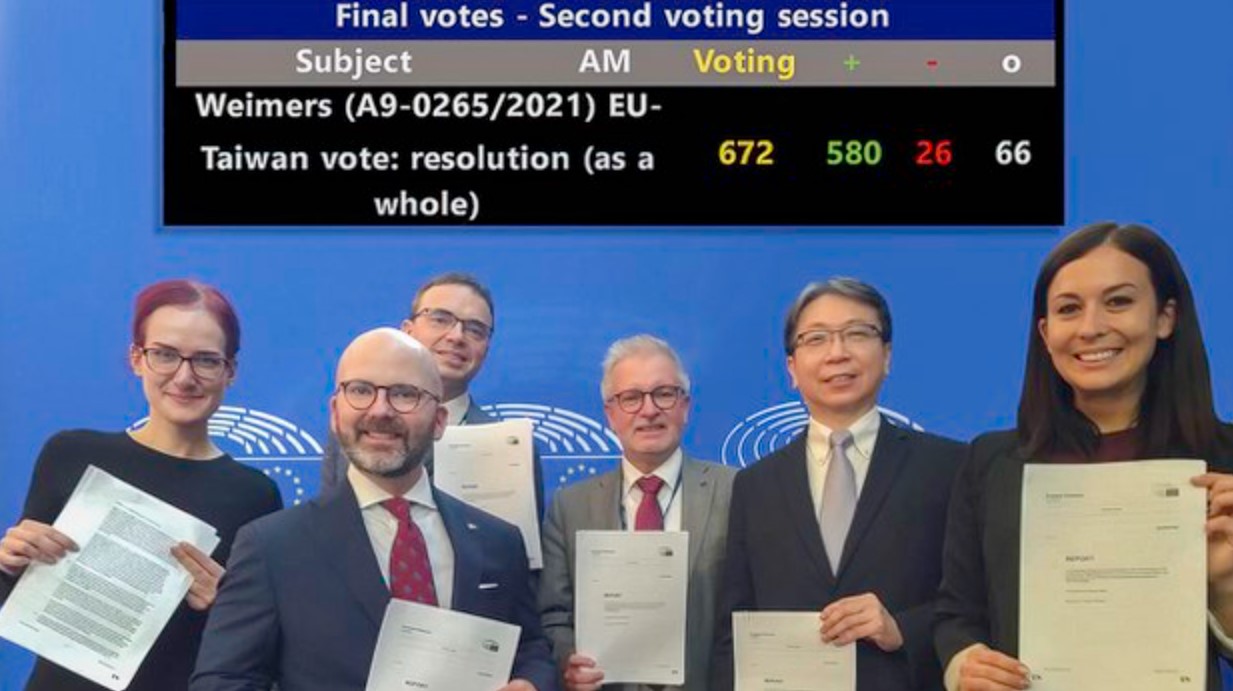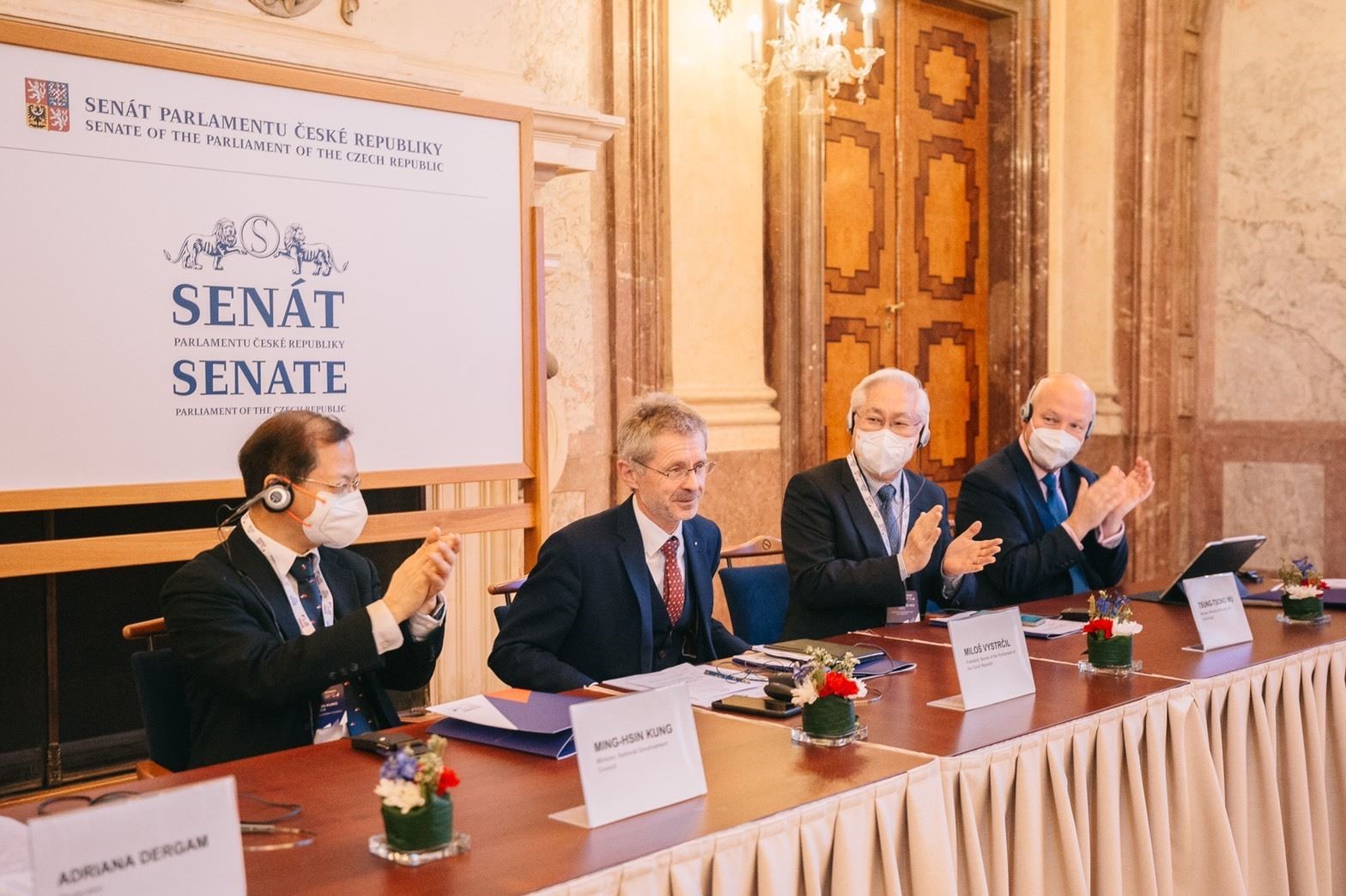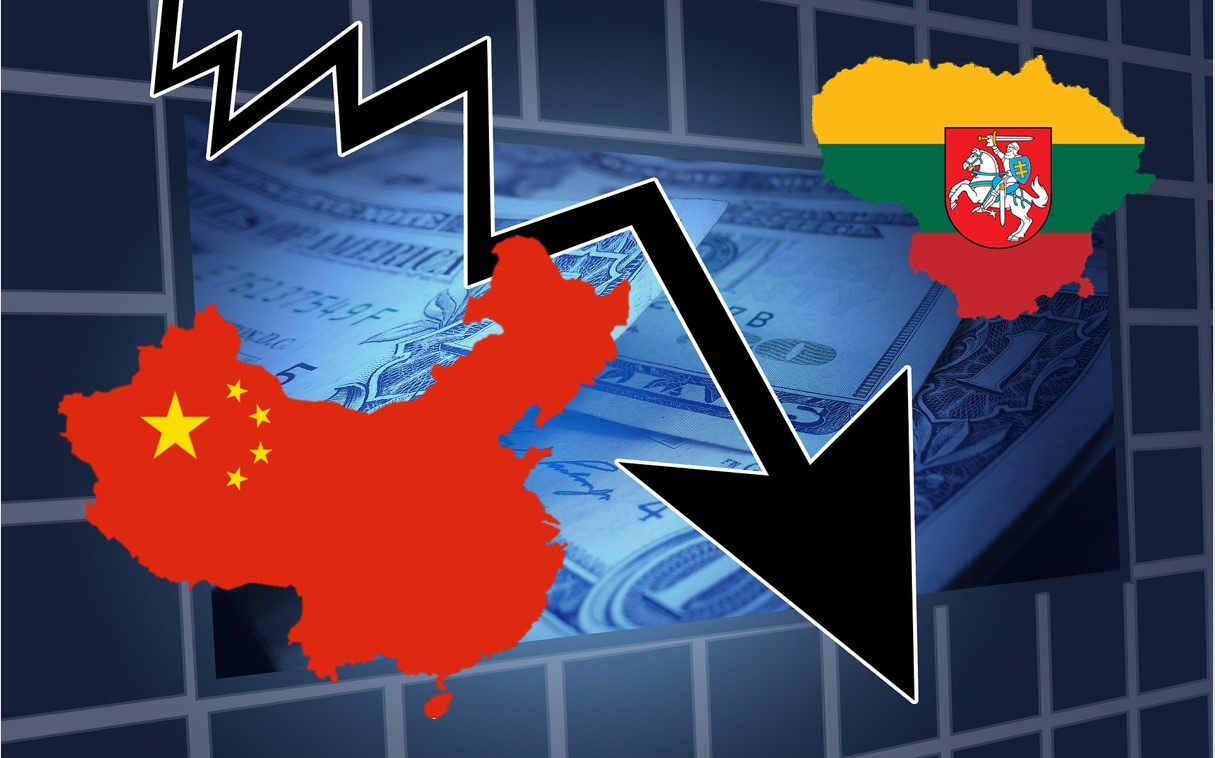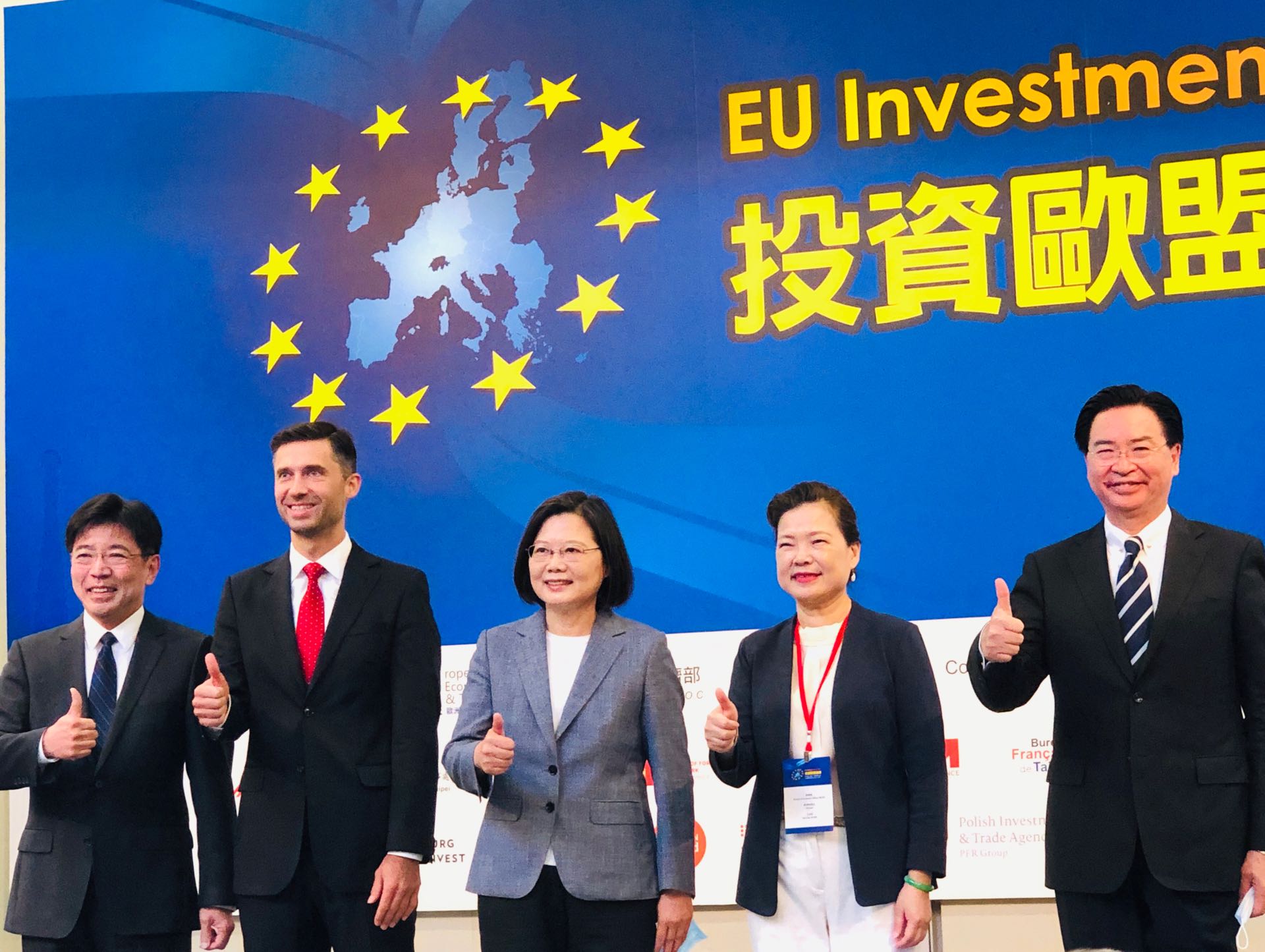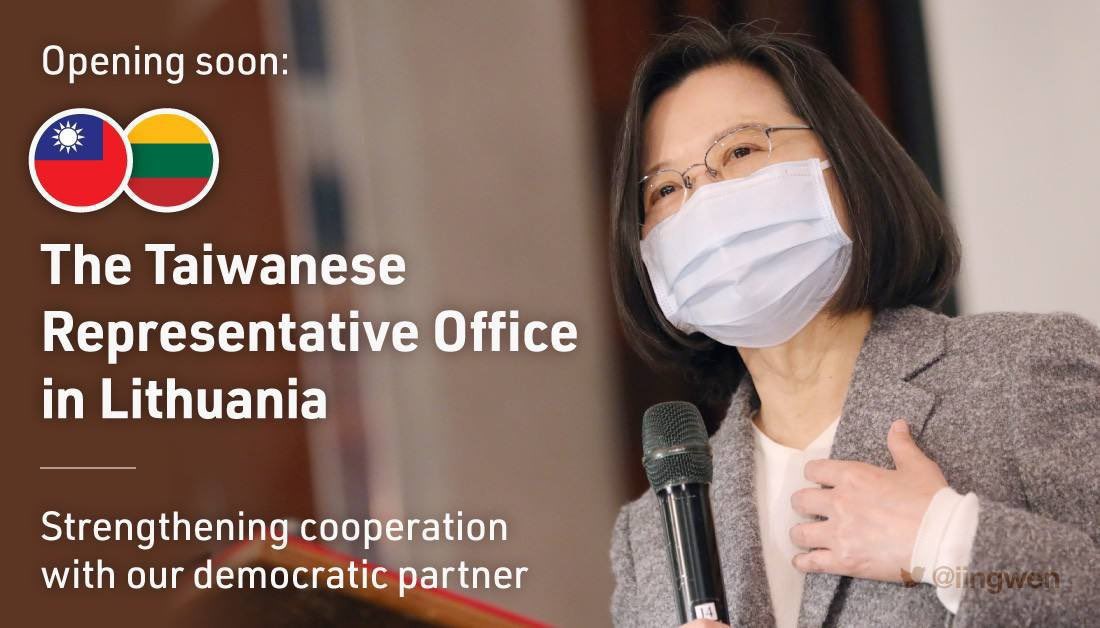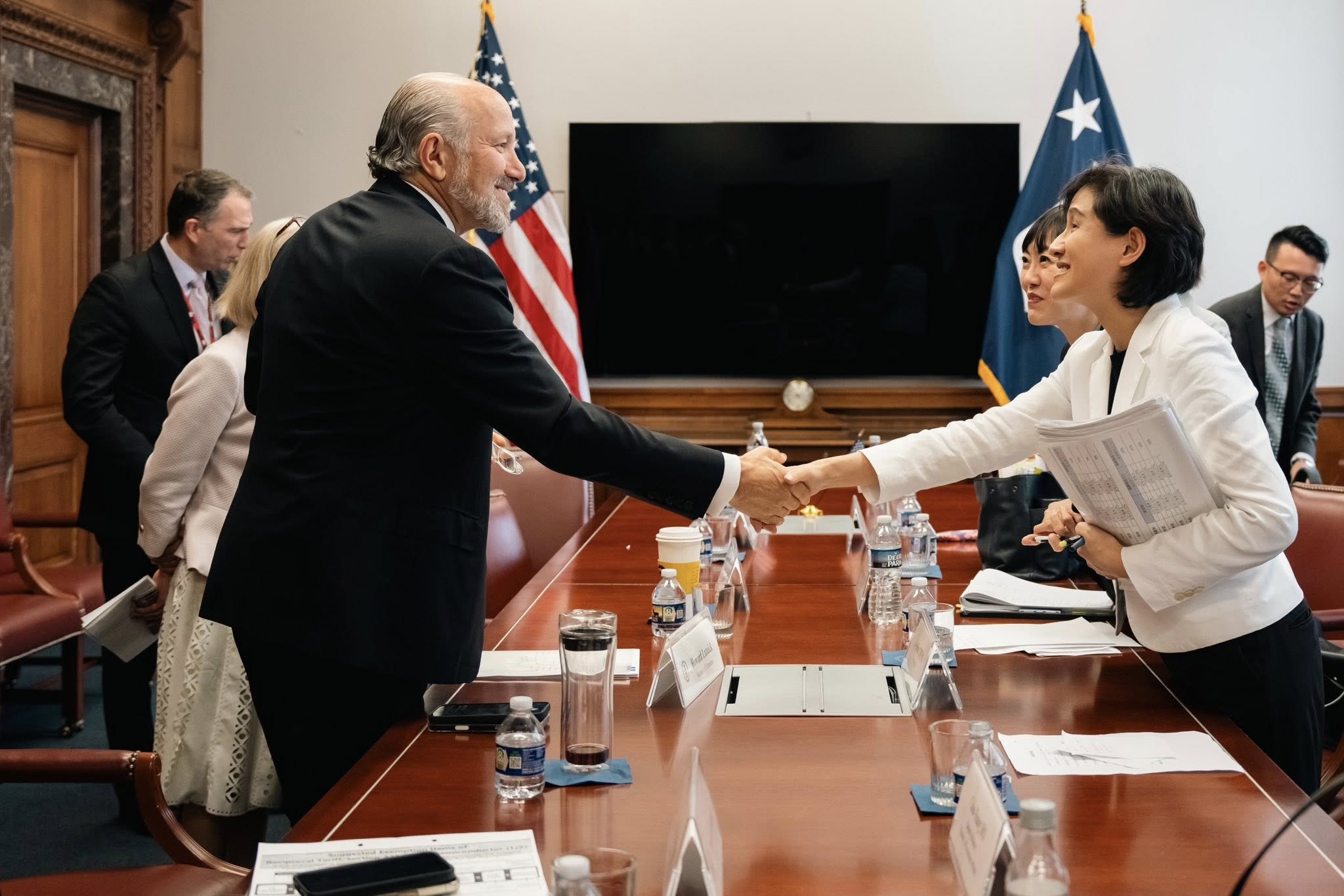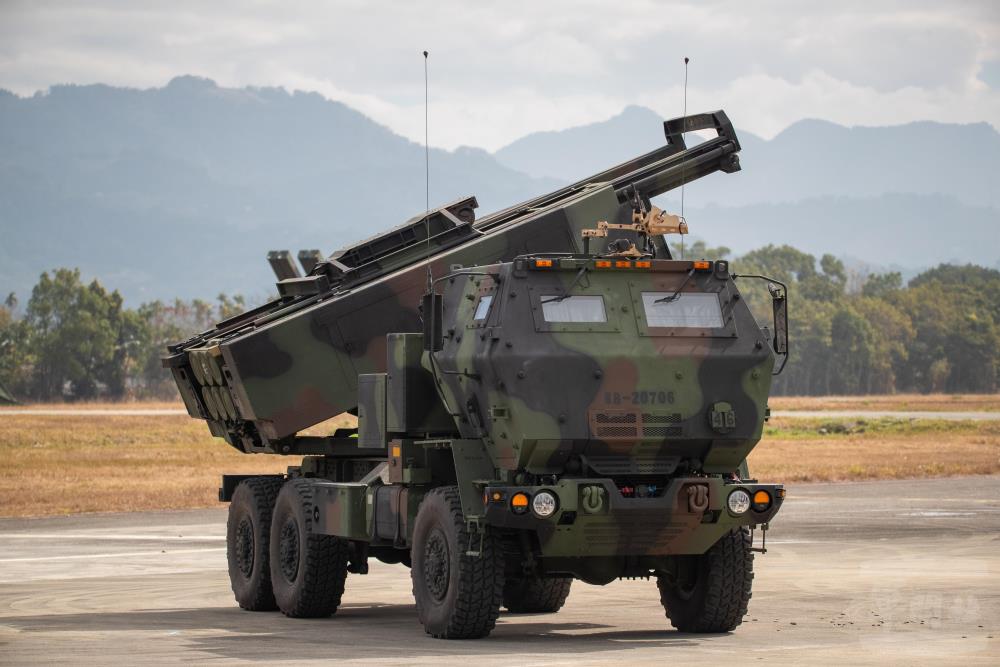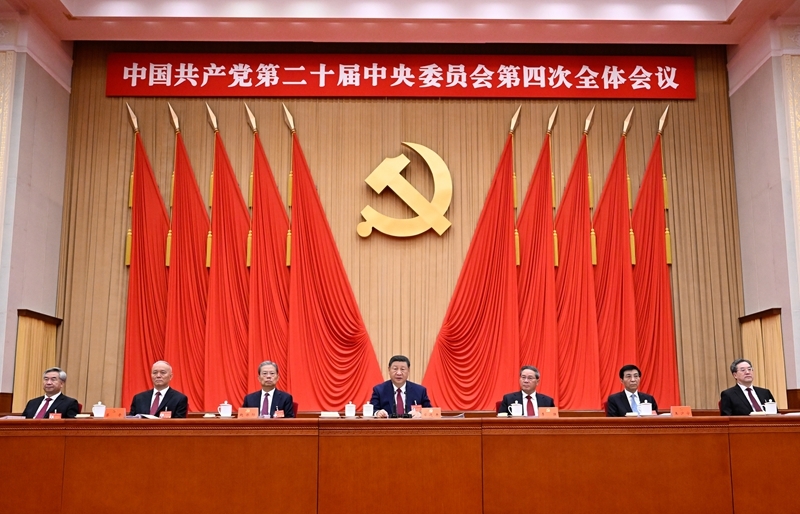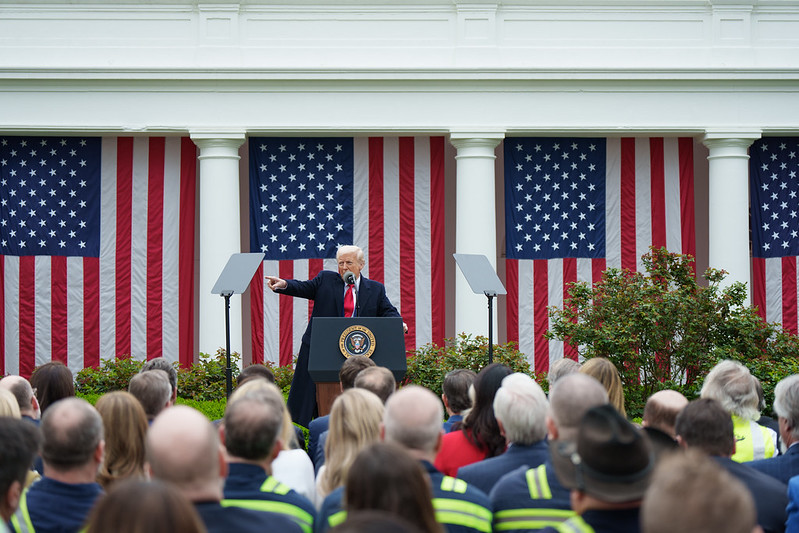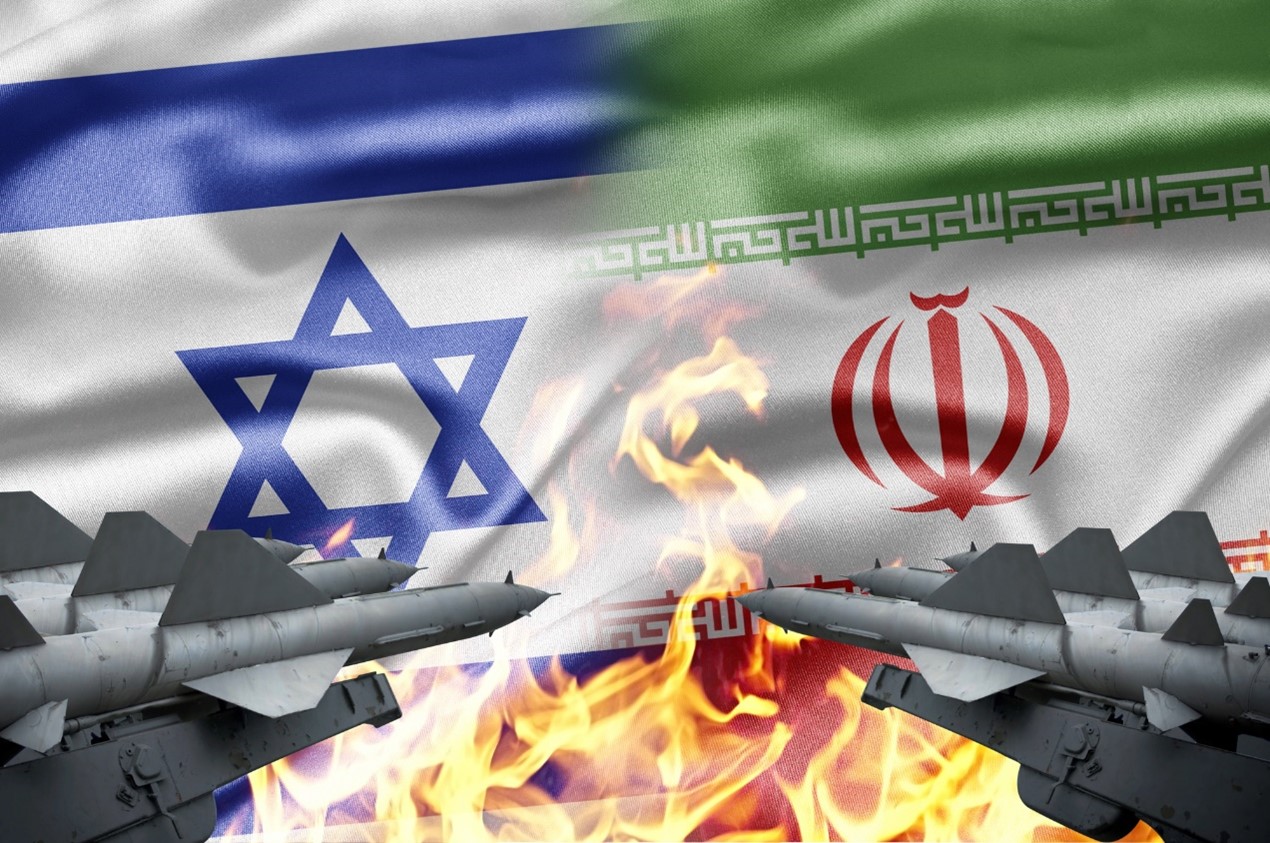European Parliament Resolution on the Situation in the Taiwan Strait: Implications for Taiwan-EU Relations
On September 15, the European Parliament adopted a resolution on the situation in the Taiwan Strait with 424 votes in favor, 14 against, and 46 abstentions. This was the 8th official document passed in the European Parliament this year expressing support for a democratic Taiwan. Picture source: Wikipedia, February 5, 2014, Wikipedia, https://zh.wikipedia.org/zh-tw/%E6%AC%A7%E6%B4%B2%E8%AE%AE%E4%BC%9A#/media/File:European_Parliament_Strasbourg_Hemicycle_-_Diliff.jpg.
European Parliament Resolution on the Situation in the Taiwan Strait:
Implications for Taiwan-EU Relations
Prospects & Perspectives No. 56 October 4, 2022
By Szu-wei Wang
Introduction
On September 15, the European Parliament adopted a resolution on the situation in the Taiwan Strait with 424 votes in favor, 14 against, and 46 abstentions. Of the seven European parliament groups in total, five raised the joint motion for a resolution, with only the Left (far left) and the Identity & Democracy (far right) not taking part. This means that the resolution has been mostly welcomed by members from the left to the right of the political spectrum. This was the 8th official document passed in the European Parliament this year expressing support for a democratic Taiwan.
The resolution reaffirms that the EU and Taiwan are like-minded partners, and strongly condemns China’s military exercises in areas surrounding Taiwan, reiterating that the “status quo” across the Taiwan Strait must not be unilaterally changed and opposing the use or threat of force. It also calls on China to completely respect the median line in the Taiwan Strait and immediately halt intrusions into Taiwan’s air defense identification zone (ADIZ) and all other grey-zone military actions. Additionally, the resolution firmly rejects China’s economic coercion against Taiwan, other democracies in the region, and EU member states, and clearly states that mutual parliamentary visits and exchanges with Taiwan will continue and be strengthened.
Analysis and implications
The resolution raises several general concerns about the situation in the Taiwan Strait and the Indo-Pacific: security, peace and stability, a rules-based international order, freedom of navigation and overflight; it also outlines the importance of the Indo-Pacific strategy for the EU and suggests that a co-investment partnership between EU’s Global Gateway and Taiwan’s New Southbound Policy should be considered. As for EU-Taiwan bilateral relations, it calls for the EU to pursue a resilient supply chain agreement and a bilateral investment agreement (BIA), and to foster exchanges and interaction between the EU and Taiwan, it calls for the renaming of the European Economic and Trade Office in Taipei. Finally, it supports Taiwan’s democracy and efforts to tackle disinformation and foreign interference.
Even though it reiterates the EU’s commitment to the “one China” policy as the political foundation of EU-China relations, compared with previous documents of the same nature, there is a significant change in certain aspects: Taiwan is now considered a partner of “strategic importance” to the EU (at least at the European Parliament level) instead of viewing Taiwan as a simple autonomous economic entity as the EU did before. On the EU side, an interesting paradigm shift from “strategic negligence” to “strategic importance” regarding Taiwan appears to have occurred.
This shift might reflect, to a certain degree, Taiwan’s increasing role in the international arena as well as the intensive worldwide media coverage about Taiwan in the past few years. Those have modified perceptions of Taiwan among European countries and societies. Europe’s attitude toward the U.S.-China competition did not involve choosing sides during the Trump administration. However, the situation since then has evolved dramatically, especially after the Russian invasion of Ukraine in February: a majority of people have suddenly realized that authoritarian regimes, such as those in Russia and China, present an immediate and imminent danger to open societies and democracies.
The incompatibility between authoritarian regimes and democracies will likely result in conflict. The threats and menace posed by authoritarian regimes can never be neutralized or be appeased by wishful thinking, neither through political engagement, nor through economic growth. The strategy of trying to decouple politics and economies, in the hope of changing authoritarian regimes through the emergence of a large number of middle-class people has been proved a waste of time in such cases.
Moreover, the importance of the semiconductor sector now plays a key role in contemporary geopolitics, and the so-called “silicon shield” incarnates a safeguard for Taiwan’s security. European countries are aware that a great percentage of their economic growth relies on a safe and reliable supply chain for computer chips, and therefore Taiwan’s security greatly matters to them. Since Chinese military maneuvers and grey-zone activities in the region are becoming more and more intimidating and aggressive, Europeans need to send strong signals to warn the Chinese that they are also stakeholders when it comes to the peace and stability in the Taiwan Strait, and that the Chinese should never act unilaterally.
Still, the resolution is a non-binding document, which means that the European Commission and European External Action Service have no obligation to follow the recommendations adopted by the European Parliament. In the meantime, domestic difficulties such as high inflation, a slowing economic activity, a potential recession, even a future financial crisis could cause serious challenges for Europe, and therefore it would be naïve to think that the EU will challenge China directly only for the sake of Taiwan. International politics are always based on realpolitik — in other words, on a nation’s own interests and calculations. Thus, it likely will be hard to see bold and clear changes in the EU’s executive body in terms of its “China policy,” yet we might expect some subtle changes in its implication, with Taiwan becoming a more important subject than ever.
Conclusion and policy advice
This year is a critical year for Taiwan’s future. The war in Ukraine offers Taiwan a once in a lifetime chance to reverse the impressions and to modify European attitudes toward Taiwan’s strategic importance. The narrative and discourse in Taiwan’s favor need to be consolidated through increased diplomatic and political efforts. It is also an ideal time to launch Taiwan’s international advocacy and Taiwan’s image campaign, especially in Europe.
Furthermore, the European Parliament has now taken an important step in the paradigm shift on Taiwan, and it could serve as the basis for Europe’s Taiwan policy in future. Moreover, there is already a direct connectivity within Indo-Pacific strategy between Europe and Taiwan, and Taiwan should make good use of this connectivity to foster its relations with Europe.
(Dr. Wang is Vice Chairman, European Union Studies Association-Taiwan.


